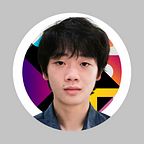Developing Life Purpose in Singapore’s Education System
Elon Musk’s goal is to get humanity to Mars. Malala Yousafzai’s goal is to create a world where all girls can learn and lead. The visionaries of today have at least 1 thing in common — a strong sense of purpose. Purpose is what gets us out of bed in the morning and what helps us up when we fall.
Does Singapore’s pre-tertiary education create and support the development of purpose in students? I interview 4 students from Raffles Junior College to find out.
Perspectives
“John” is a JC1 student in the science stream. He believes his purpose in life is to be happy. After all, there are endless things to achieve. So one would never be satisfied if one’s purpose is certain tangible goals. When asked about whether school develops his sense of purpose, he replied with a firm “No”. He says school, with its overwhelming workload, has punished his mental health. Its teaching style and learning objectives do not align with his goals. As such, he has resigned to viewing JC as “a necessary evil to attain possible future success”.
“Sarah” is another JC1 student with a keen interest in physics and computing. She believes her purpose is to help people through physics and computing-related innovation. School has made her realize her passion through various computing enrichments and physics lessons. At the same time, being forced to take other subjects diverts attention away from her passion. Sarah points out, “School hinders my sense of purpose by forcing me to take other subjects, but I also understand the need for a broad education.”. Overall, she believes school has helped her.
The 2 other students share similar sentiments to John and Sarah respectively.
Observations
Two things stuck out to me. Despite being 17 year olds, everyone has a rather mature sense of purpose, regardless of whether school hindered or enabled it. They are largely self-directed students who have their own perspective on life. Thus, junior colleges cannot simply prescribe activities and goals to students, but must also be cognizant to their goals in life and ensure their education supports them. This leads to my second observation.
Junior college only supports a narrow subset of purposes and goals. Sarah is lucky insofar as she managed to discover her passion within the boundaries of JC education — physics and computing. But what about those who go “off script” and fall beyond these boundaries? Another interviewee mentioned he does not have lofty ambitions — he wants to earn a decent living so he can travel the world. Others share their aspirations in sports and entrepreneurship and many more.
JC education is centered around Singapore’s A-Level examination, which students spend majority of their productive energy studying for. According to MOE, A-Level’s goal is to ensure “good grounding across different areas of study”. As such, our education is successful in inculcating pure academic knowledge — Singapore’s #2 PISA ranking is not without reason. But it completely excludes those whose goals fall outside of its subjects. For such students, JC becomes a stressful and stifling environment, or as John neatly summarizes — “a necessary evil”.
Solutions
Junior colleges should increase its emphasis on extracurriculars. This will enable students to pursue and explore fields beyond what A-level offers. Raffles Junior College, a well-funded institution, already has a comparatively large body of enrichments. Yet many of its students still see school as a hindrance towards their goals. More can be done in this regard.
Interestingly, even students whose life purpose aligns with JC education show the value of extracurriculars. Sarah’s focus on computing comes from CCA and enrichment programmes exclusively, while physics only accounts for 25% of her A-level education. Greater emphasis on extracurriculars helps everyone, not just those neglected.
But more crucially is the need for systemic change. A-Level currently has a stranglehold over our education for two reasons. It dominates local university admissions requirements. Parents and teachers tend to place A-Levels on a pedestal, which only reinforces its importance. As JC education continues to revolve around A-Levels, extracurriculars will always be a second-class citizen in one’s education. When exams are around the corner, all extracurricular activities come to a halt. In other words, our education systematically prioritizes certain life purposes over others. But is this justified? What makes the pursuit of physics more important than that of innovation, or the wish to lead a simple life?
Extracurriculars must be treated as a first-class citizens in JC education. Despite what the name implies, extracurriculars should be part of our curriculum, such that a normal school day consists of both academics and extracurriculars (e.g. volunteering, internships, projects) — equally. In order to make space for non-academic activities , de-emphasising A-Levels is necessary. To address why A-Levels dominate our education, as a start, local universities can shift to a more holistic admissions process, similar to the US, where extracurriculars are recognized. Societal perceptions are deeply in-grained and can only slowly be changed. If MOE takes genuine steps to de-emphasize A-Levels, by for example, decreasing the difficulty of national exams, Singaporeans will slowly come around to a more “purpose-aware” education system.
As JC education continues to revolve around A-Levels, extracurriculars will always be a second-class citizen in one’s education.
Conclusion
Supporting diverse life goals under a single education system is difficult. When systemic change is required, this goal seems even more difficult. But considering the large proportion of students neglected and the disillusionment with JC education, supporting diverse life goals will take us one step closer to the “broad-based, holistic education” MOE strives to create.
